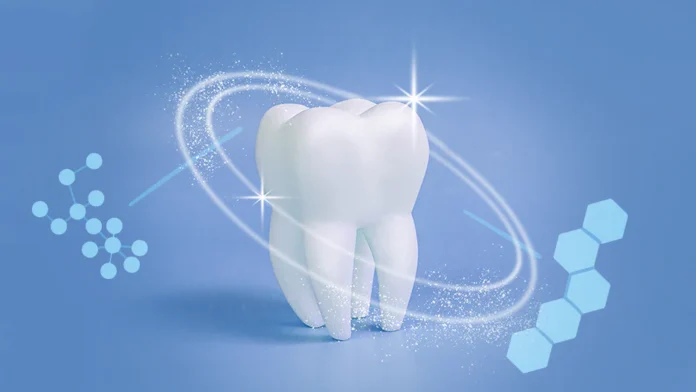Introduction
Tooth sensitivity can be a frustrating and painful condition, affecting daily activities such as eating, drinking, and even brushing. For individuals with sensitive teeth, selecting the right toothpaste is crucial for managing discomfort and protecting dental health. This article provides a comprehensive guide on how to choose the best toothpaste for sensitive teeth, highlighting key factors to consider and ingredients to look for.
Understanding Tooth Sensitivity
Tooth sensitivity occurs when the enamel wears down or gums recede, exposing the underlying dentin. This layer contains tiny nerve endings that can react to temperature changes, sweet foods, or even air exposure. Factors contributing to tooth sensitivity include:
- Enamel Erosion: Caused by acidic foods, Toothpaste, aggressive brushing, or teeth grinding.
- Gum Recession: Gum disease or improper brushing techniques can lead to gum recession, exposing sensitive areas of the teeth.
- Dental Procedures: Recent dental work can temporarily increase tooth sensitivity.
Understanding the causes of sensitivity is the first step in finding effective solutions, including the choice of toothpaste.
Key Ingredients to Look For
When choosing toothpaste for sensitive teeth, specific ingredients can help alleviate discomfort and promote oral health. Here are some key components to consider:
1. Potassium Nitrate
Potassium nitrate is a common ingredient in toothpaste designed for sensitivity. It works by calming the nerve endings in the dentin, reducing pain signals transmitted to the brain. Regular use of toothpaste with potassium nitrate can significantly decrease sensitivity over time.
2. Strontium Chloride
Strontium chloride is another effective ingredient that helps block the nerve pathways in the teeth. It acts as a barrier, preventing irritants from reaching sensitive areas. Toothpaste with strontium chloride can provide quick relief for sensitive teeth.
3. Fluoride
Fluoride is essential for strengthening enamel and preventing cavities. For individuals with sensitive teeth, fluoride toothpaste can help remineralize and protect the enamel, reducing the risk of further sensitivity. Look for fluoride options that also contain sensitivity-relief ingredients.
Avoiding Harsh Abrasives
While cleaning your teeth effectively is important, using toothpaste with harsh abrasives can exacerbate sensitivity. Here are some tips for selecting gentler options:
- Low-Abrasive Formulas: Choose toothpaste labeled as “low abrasion” or “gentle.” These products are less likely to wear down enamel or irritate sensitive areas.
- Avoid Whitening Toothpastes: Many whitening toothpastes contain abrasive agents that can increase sensitivity. Opt for sensitivity-specific formulations instead.
Consider Flavor and Texture
The flavor and texture of toothpaste can also impact your brushing experience, especially for those with sensitive teeth. Here are some considerations:
- Mild Flavors: Strong mint flavors can sometimes cause discomfort for sensitive teeth. Consider milder flavors, such as vanilla or herbal options, to make brushing more pleasant.
- Smooth Texture: Toothpaste with a smooth texture can be easier on sensitive areas. Avoid gritty formulas that may cause irritation during brushing.
Recommended Toothpaste Brands
Several reputable brands offer specific toothpastes designed for sensitive teeth. Here are some widely recognized options:
- Sensodyne: Known for its wide range of sensitivity-relief toothpastes, Sensodyne contains potassium nitrate or strontium chloride, providing effective relief for sensitive teeth.
- Colgate Sensitive Pro-Relief: This toothpaste offers a dual-action formula that provides immediate relief and long-term protection against sensitivity.
- Crest Pro-Health Sensitive: Formulated with fluoride and sensitivity-relief ingredients, Crest Pro-Health is designed to strengthen enamel while alleviating discomfort.
Consult Your Dentist
If you experience ongoing sensitivity, it’s essential to consult your dentist. They can help identify the underlying causes of your sensitivity and recommend appropriate treatments, including specific toothpaste options. Regular dental check-ups also allow for the early detection of any issues that may contribute to sensitivity.
Conclusion
Choosing the right toothpaste for sensitive teeth is essential in managing discomfort and maintaining overall oral health. By looking for key ingredients like potassium nitrate and fluoride, avoiding harsh abrasives, and selecting mild flavors and textures, individuals with sensitivity can find effective solutions. Brands like Sensodyne and Colgate offer specialized options, but it’s always best to consult with a dental professional for personalized recommendations. With the right toothpaste and good oral hygiene practices, you can effectively manage sensitivity and enjoy a healthier, more comfortable smile!
